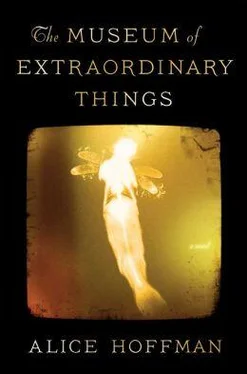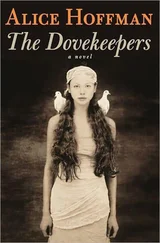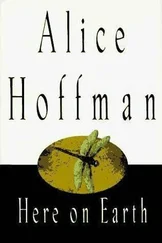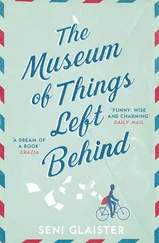Although I was shy, I did have a curious side, even though I had been told a dozen times over that curiosity could be a girl’s ruination. I wondered if I had inherited this single trait from my mother. Our housekeeper, Maureen Higgins, who had all but raised me, had warned me often enough that I should keep my thoughts simple and not ask too many questions or allow my mind to wander. And yet Maureen herself had a dreamy look when she instructed me, which led me to presume that she didn’t follow her own dictates. When Maureen began to allow me to run errands and help with the shopping, I meandered through Brooklyn, as far as Brighton Beach, little over a mile away. I liked to sit by the docks and listen to the fishermen, despite the rough language they used, for they spoke of their travels across the world when I had never even been as far as Manhattan, though it was easy enough to walk across the Brooklyn Bridge or the newer, gleaming Williamsburg Bridge.
Though I had an inquisitive soul, I was always obedient when it came to the Professor’s rules. My father insisted I wear white cotton gloves in the summer and a creamy kid leather pair when the chill set in. I tolerated this rule and did as I was told, even though the gloves felt scratchy on summer days and in winter chafed and left red marks on my skin. My hands had suffered a deformity at birth, and I understood that my father did not wish me to be thought of with the disdain that greeted the living wonders he employed.

Our housekeeper was my only connection to the outside world. An Irish woman of no more than thirty, Maureen had once had a boyfriend who had burned her face with sulfuric acid in a fit of jealous rage. I didn’t care that she was marked by scars. Maureen had seen to my upbringing ever since I was an infant. She’d been my only company, and I adored her, even though I knew my father thought her to be uneducated and not worth speaking to about issues of the mind. He preferred her to wear a gray dress and a white apron, a proper maid’s uniform. My father paid Maureen’s rent in a rooming house near the docks, a cheap and unpleasant place, she always said, that was not for the likes of me. I never knew where she went after washing up our dinner plates, for she was quick to reach for her coat and slip out the door, and I hadn’t the courage to run after her.
Maureen was smart and able, despite my father’s opinion, and she often treated me as an equal. I liked to sit on the back steps beside her as we took our lunch together. She fixed lettuce and butter sandwiches to share with me. I thought she was quite beautiful, despite her scars.
She was the one person other than my father who knew of my deformity, and she concocted a mixture of aloe and mint to rub between my fingers. I was grateful for both her kindness and her matter-of-fact air. “It fixes most things,” she said knowingly of the salve. “Except for my face.”
Unfortunately, the elixir did nothing for me either, yet I grew accustomed to its scent and used it nightly. Maureen smoked cigarettes in the backyard although my father had expressly forbidden her to do so. Only whores had such habits, he said, and besides, he had a tremendous dread of fire, for a single spark could ignite the entire museum and we would lose everything. He stood on the roof with buckets of water during summer storms, keeping a close watch on the movement of the lightning when it split through the sky. His collection was irreplaceable. In the off months, when the museum was shuttered, he covered the glass cases with white linen, as if putting the mummified creatures on display to bed for a long winter’s rest. He was surprisingly gentle at these times. “I’ll sneak you into the exhibits if you want,” Maureen offered every now and then, though she was well aware that children under the age of ten were banned from entrance.
“I think I’ll wait,” I remarked when Maureen suggested I break my father’s rules and enter the museum. I was not the rebel I later came to be. I was nine and three quarters at the time and hadn’t much longer to wait before I was old enough to gain entrance to the museum. I wore my black dress and buttoned leather boots. My black stockings were made of wool, but I never complained when they itched. If anyone had asked what was the first word I would use to describe myself, I would have immediately answered well behaved. But of course, few people know their true natures at such a tender age.
“Waiters wait and doers don’t.” Maureen’s skin was mottled as if she were half in shadow, half in sunlight. At certain hours of the day, noon, for instance, when the sun broke through, she looked illuminated, as if the beauty inside her was rising up through her ravaged complexion. She gazed at me with sympathy. “Afraid your daddy will make you pay if you misbehave?”
I was, of course. I’d seen my father enraged when a player came to work late or broke one of his rules, smoking cigars in public, for instance, or forming a romantic entanglement with a member of the audience. He’d taken his cane to a fellow from England who called himself the King of the Ducks, for this gentleman had flesh in the shape of wings instead of arms. My father told the King never to return, all because he suspected him of sipping from a flask of whiskey during museum hours. It was unfair, of course, considering how much my father liked his rum.
I didn’t need to explain my hesitation to our housekeeper.
“I don’t blame you.” Maureen sighed. Her breath smelled like mint and rosemary, her favorite kitchen seasonings. “He’d probably have you running up and down the beach for a whole night without a bit of rest to punish you. You’d be limping at the end of it, panting for water, and he might not forgive you even then. He’s a serious man, and serious men have serious rules. If you defy them, there will be consequences.”
“Was your boyfriend serious?” I dared to ask. It was a topic Maureen usually did not speak of.
“Hell, yes,” she said.
I loved the way she used the word hell; it came naturally to her, the way it did to the men who worked on the docks loading herring and bluefish.
“What was his name?”
“Son of shit,” Maureen said evenly.
She always made me laugh.
“Son of a dog’s mother,” she went on, and I laughed again, which egged her on. “Son of Satan.” I loved it when she grinned. “Son of hell.”
We both stopped laughing then. I understood what she meant. He’d been a bad man. I’d seen such men on Surf Avenue and along the pier. Con artists and thieves, the sort a girl learned to stay away from early on. Coney Island was full of them, and everyone knew the police often looked the other way when paid off by these crooks. A fiver would get you pretty much anything you wanted on the streets of Brooklyn, and there were girls my age who were bought and sold for much less. Some bad fellows looked friendly, others looked like demons. Maureen always told me you couldn’t judge a book by its cover, but if anyone should ever call me into an alleyway, I was to run, no matter what gifts I might be offered. If the need arose, I could kick a fellow in his knees or in his private parts, and that would most likely force such an individual to keep his distance.
“You know what love is?” Maureen said to me that day. Usually she went about her work and was somewhat tight-lipped regarding the larger issues of life. Now she became more open than usual, perhaps more like the person she’d been before she’d been scarred.
Читать дальше













